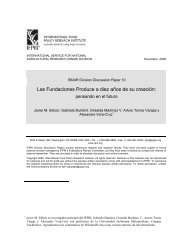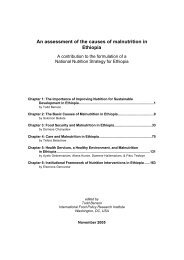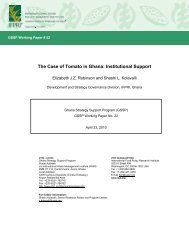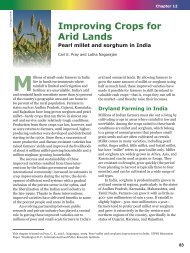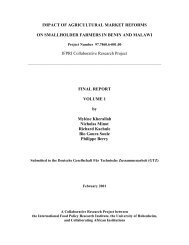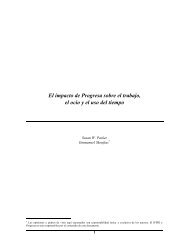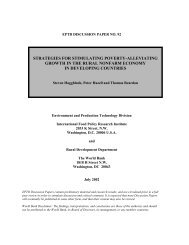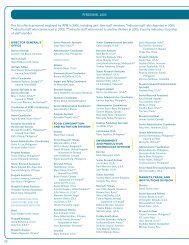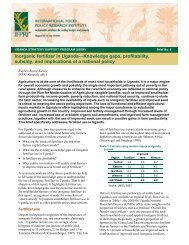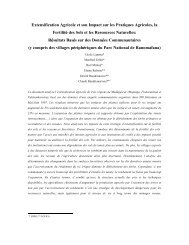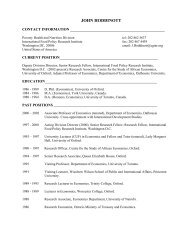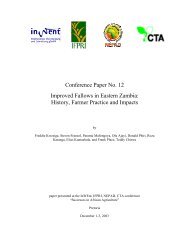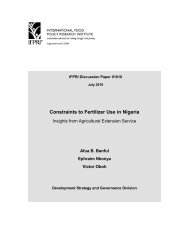An Economic Assessment of Banana Genetic Improvement and ...
An Economic Assessment of Banana Genetic Improvement and ...
An Economic Assessment of Banana Genetic Improvement and ...
Create successful ePaper yourself
Turn your PDF publications into a flip-book with our unique Google optimized e-Paper software.
Foreword<br />
This research report highlights the findings from a set <strong>of</strong> studies undertaken by the International<br />
Food Policy Research Institute, along with several national <strong>and</strong> international<br />
research institutions, to assess the economic impact <strong>of</strong> improved cultivars <strong>and</strong> management<br />
practices on smallholder farmers in the Lake Victoria Region <strong>of</strong> Ug<strong>and</strong>a <strong>and</strong> Tanzania—<br />
an area where the cooking banana is both economically <strong>and</strong> culturally important. <strong>Genetic</strong><br />
transformation is a promising alternative for improving the resistance <strong>of</strong> banana plants to the<br />
pests <strong>and</strong> diseases that cause serious economic losses, because bananas, unlike rice, wheat,<br />
<strong>and</strong> maize, are difficult to improve through conventional breeding techniques.<br />
The team <strong>of</strong> researchers posed three broad questions: What is the current level <strong>of</strong> adoption<br />
<strong>of</strong> improved cultivars <strong>and</strong> management practices, given the constraints to banana production<br />
<strong>and</strong> marketing? What are the prospects that banana growers will adopt cultivars with transgenic<br />
resistance to pests <strong>and</strong> diseases, given existing constraints? What is the potential impact<br />
on the banana industry <strong>of</strong> a range <strong>of</strong> genetic technologies now under development by national<br />
researchers?<br />
Findings confirm that smallholder farmers value the crop traits targeted for introduction<br />
by current bioengineering efforts, <strong>and</strong> that transgenic bananas have the potential to benefit the<br />
poor. The focal role <strong>of</strong> farmers in developing <strong>and</strong> promoting planting material systems <strong>and</strong> the<br />
influence <strong>of</strong> social capital on technology adoption are both demonstrated by the baseline data,<br />
with implications for the design <strong>of</strong> extension systems.<br />
The research summarized in this report is new in several respects. First, it documents the<br />
uptake <strong>of</strong> newly released banana hybrids <strong>and</strong> other recommended banana practices on semisubsistence<br />
smallholder farms in East Africa. Second, a complete taxonomy <strong>of</strong> distinct banana<br />
cultivars grown in the region has been developed. Third, the research puts existing knowledge<br />
into perspective with advanced social science methods.<br />
The findings <strong>and</strong> recommendations resulting from this study will be useful for policy decisions<br />
in the region, contributing initially to technological development <strong>and</strong> dissemination, <strong>and</strong><br />
ultimately to increased crop productivity.<br />
Joachim von Braun<br />
Director General, IFPRI<br />
x



